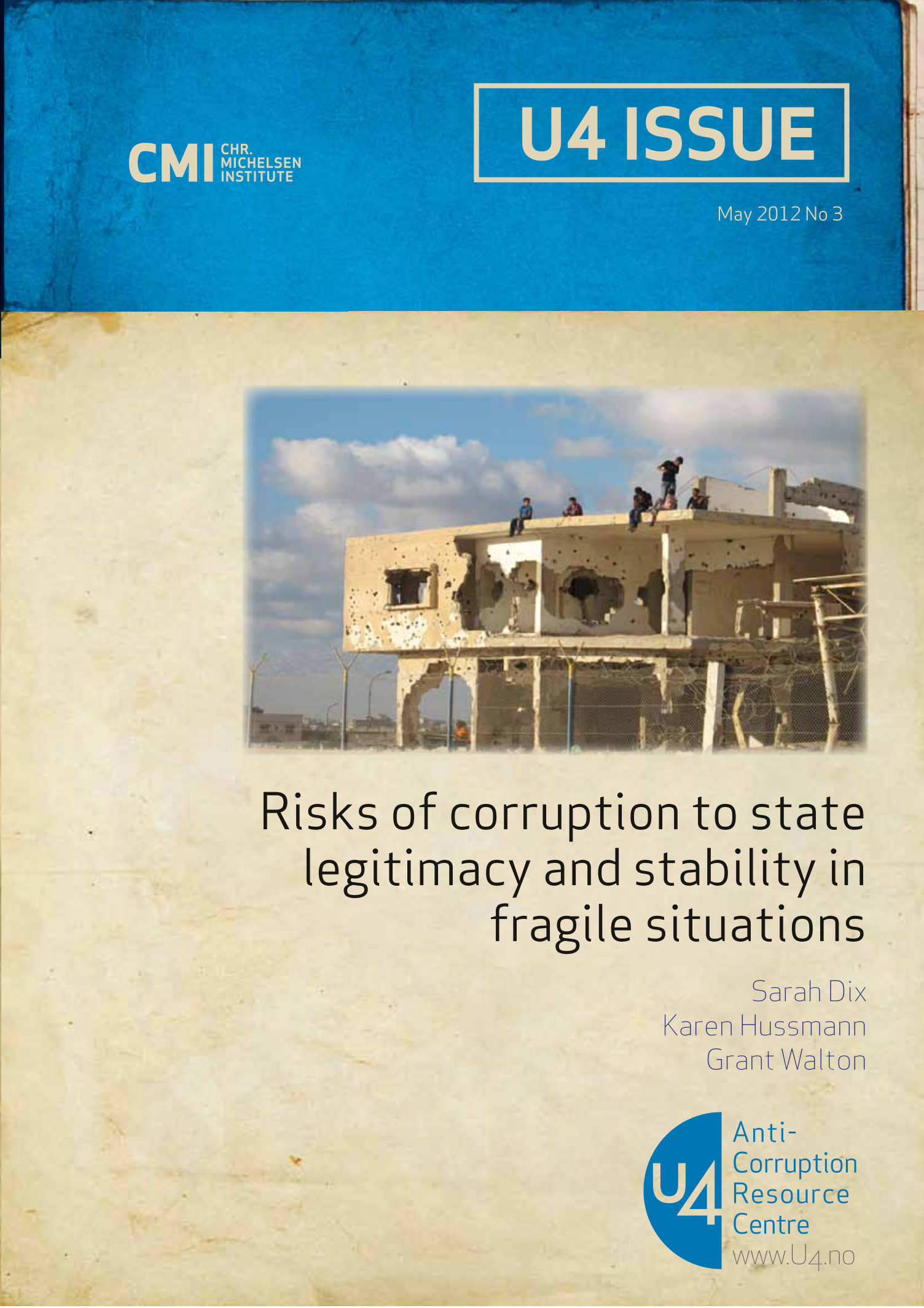U4 Issue
Risks of corruption to state legitimacy and stability in fragile situations
Examining the cases of Liberia, Nepal and Colombia, this study asks how corruption poses risks to political legitimacy and stability in fragile situations. The report focuses on the key role of elites and their views of the state's legitimacy in determining the extent to which there will be instability or stability. Qualitative interviews of elites show that two particular patronage scenarios are seen as threatening stability. One is when the state or illegal actors sustain a corrupt network by violently eliminating opponents. The other is when corruption benefits few people, the benefits are not distributed “fairly,” and the population’s basic needs are not met. Public opinion data suggest that despite corruption, the legitimacy of governments and public institutions in the three countries studied is reasonably high. The impact of corruption on legitimacy and stability is mitigated by other factors. Anti-corruption initiatives potentially strengthen state legitimacy, but undermine it if they fail to deliver or become too far-reaching. In conclusion, the report makes recommendations to the international community for prioritising action on corruption.

Cite this publication
Hussmann, K.; Dix, S.; Walton, G. 2012. Risks of corruption to state legitimacy and stability in fragile situations. Bergen: Chr. Michelsen Institute (U4 Issue 2012:3) 79 p.
Disclaimer
All views in this text are the author(s)’, and may differ from the U4 partner agencies’ policies.
This work is licenced under a Creative Commons Attribution-NonCommercial-NoDerivatives 4.0 International licence (CC BY-NC-ND 4.0)

